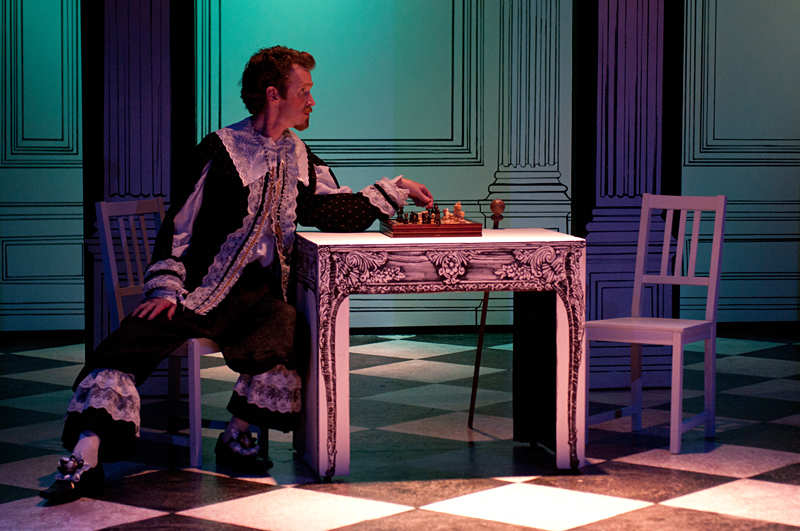Tucked between Macy’s and Spazzo in Redmond Town Center is SecondStory Repertory, a redoubt of living, breathing theater amid the retail glitz—and a wonderful setting for Molière’s scathing 17th-century satire. Director Corey McDaniel’s enthusiastic cast spits Richard Wilbur’s modern translation lithely, playing it exclusively for laughs. Although there’s no disputing Molière intended the work as comedy, this breezy interpretation foregoes the more wounding punches that would have its characters truly feel the consequences of their own delusions.
Not that the huffing and puffing caricatures aren’t fun. Complacent bourgeois Orgon (John Clark) sputters, blinks, and turns away resolutely when most of his family suggests that his new friend Tartuffe is a user, a sanctimonious conniver. For all intents and purposes, Orgon has been Tartuffified—inducted into a little cult of Tartuffe worship that includes his mother (Jody McCoy, whose manner is the most naturalistic of the bunch). While Orgon plans to marry his daughter Mariane (Alysha Curry) to Tartuffe, the savvy maid Dorine (a deliciously autocratic Rosalynn Le, wielding her feather duster like a whip) and Orgon’s wife Elmire (Meredith Armstrong) scheme to expose Tartuffe’s fraudulence.
James Weidman makes a devilish Tartuffe. Tall and thin, red hair in pompadour and barbiche, it’s hard to imagine where he puts all that mutton and port from Orgon’s table. He dabs his lips and waves his hankie behind his derriere with such delicacy that he becomes a truly infernal image of insatiability. Costumer Janessa Jayne Styck festoons him in lace-kneed bloomers beneath his puritanical waistcoat; and in the crucial scene where he’s framed for indecency, he unties his shirt collar with his teeth. Such tiny, character-revealing moments burst like juicy grapes on a parched palate.
Mark Chenovick’s set, cleverly showcasing two-dimensional symbols, further illustrates the shallow, almost willfully blind society being lampooned. If the humor doesn’t cut to the bone here, it’s because Orgon remains ever the indignant victim, blaming Tartuffe for his deception, not himself. To realize why he fell for such pious platitudes would require a harsher, more honest self-assessment. This production, despite many charms, doesn’t quite get there. And neither, as a society, have we.








